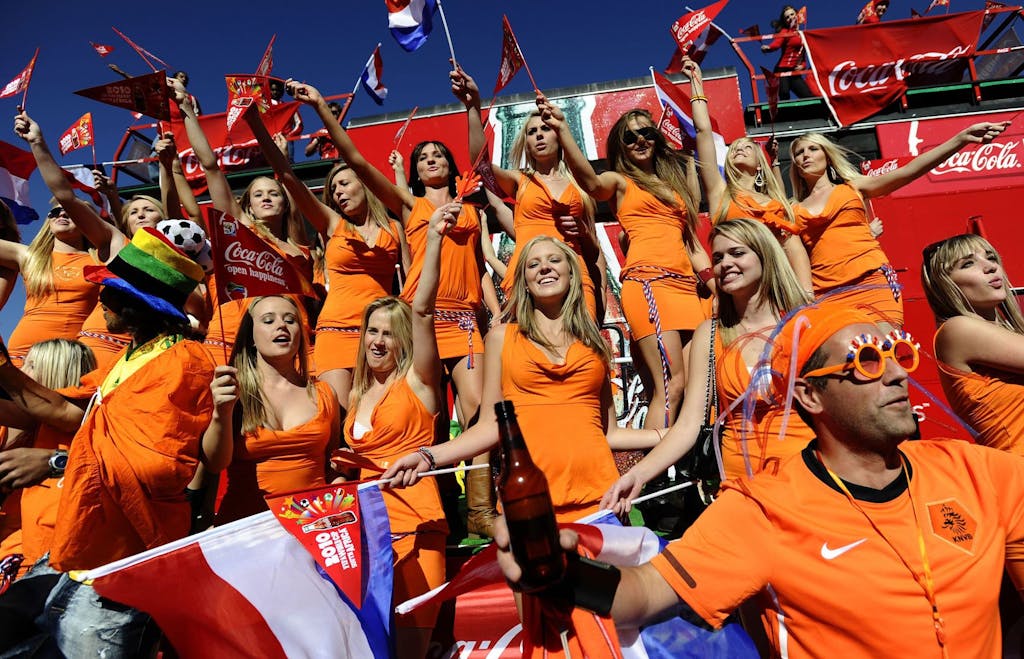
Beauty is in the eye of the beholder. And you can say the same about ambush marketing. One person’s outrageous ambush is another’s genius marketing campaign.
So how is ambush marketing defined? From a legal point of view, it isn’t. It really does depend on your perspective. Most people will, however, agree that any activity which seeks to benefit from the goodwill and public attention attracted by a significant event, without paying for the sponsorship rights to do so, can be classified as ambush.
There are lots of nuances to this though. At a major tournament, is a brand which sponsors a participating team or athlete and activates this around the event ambushing it? What about an unconnected brand which buys up lots of billboards at the venue’s nearest stations? What about a brand which buys bumper ads to the TV coverage of the events? In some peoples’ books these may be deemed ambush, but others may see it as legitimate and sensible marketing tactics.
There are also different categories of ambush, the clearest cut of which are: ambush by association and ambush by intrusion. The former occurs when the content of a brand’s advertising refers or alludes to the event. The latter occurs when a brand seeks to gain visibility at or around the event – for example by ‘intruding’ onto the field of play and gaining the eyeballs of the spectators in the stadium and the TV viewers around the world.
As a lawyer it’s convenient to say that an activity is an ambush only if it can be prevented by legal action, but even then, this will depend on which event is being considered and which country’s laws apply. So, with the eyes of the world turning to Japan, let’s focus on the rules which apply to the Tokyo Olympic Games in the UK.
The Olympic Games benefit from some of the strongest legal protections around the world. In the UK, a statute dating back to 1995, The Olympic Symbol etc Protection Act, affords special protection to the Olympic symbol, motto and various derivatives of the word Olympic. As a result, any ‘clever’ ambusher who thinks they can run an “Olympix” campaign or use, perhaps, onion rings placed in the formation of the Olympic symbol, are out of luck. The IOC also has numerous registered trademarks it could rely upon, but given the breadth of protection the 1995 Act provides, the likelihood is that the British Olympic Association (which has the right to bring civil action under the Act) will pursue a straightforward infringement in the UK. Since 2006 the Paralympic symbol, words and motto have also been protected by this legislation.
As there’s been uncertainty over whether the Games will go ahead, big, above-the-line campaigns linked to the Games are less likely to be on an ambusher’s agenda. Social media will be a much more attractive route – campaigns can be lower budget but equally effective and, more importantly, can be withdrawn quickly if necessary. Social media is not exempt from the 1995 Act, or any other Intellectual Property rights though, so the temptation to refer directly to or use images or footage from the Games on social channels should be avoided.
For those brands which have a route into Japan and are considering ambush by intrusion as an option, the ticket and participant’s terms are likely to be most relevant. Contract law will provide the IOC’s remedy to prevent this ‘Trojan horse’ style of ambush. A well-briefed broadcast team will also ensure any blatant attempts to gain visibility are avoided – for example a streaker promoting a brand, or a branded blimp flying over a venue will have been anticipated and protocols will be in place.

Given Covid-19 restrictions, it is unlikely that ambush by intrusion will be high on the agenda, unless a brand seeks to emulate something like Beats by Dre’s ambush from 2012 Games. Headphones in national colours and bearing Beats’ “b” logo were handed out for free to athletes from their London base. Without paying the athletes, Beats successfully relied on the athletes as their vehicle onto the field of play, gaining significant visibility on broadcasts – until the IOC and team managers clamped down on it at least.
As far as the 2020 Olympic Games go, my bet is on lots of ‘safe’ but relatively lazy campaigns that jump on a generic sporting, Japanese or British theme. You’ll have seen similar versions during the Euros – lots of footballs, cheering crowds and national flags. I say these are ‘safe’ campaigns as, while they allude to the event, they won’t cross the legal line unless they result in genuine confusion. If they go too far, the rights-holder might be able to rely on the tort of passing off (which can be used to prevent misrepresentations made by a brand, and is often relied on by celebrities and rights-holders in false endorsement cases), or consumer protection laws which prohibit misleading advertising.
Social media is likely to see some more adventurous and creative campaigns, either because brands will be willing to risk more on easy-to-remove digital creative, or because social teams don’t have to go through the same rigorous clearance processes as for above-the-line ads.
Finally, we may see more campaigns using Olympians this summer. The IOC has relaxed Rule 40 of the Olympic Charter – this prevented athletes competing in the Games from allowing their personal (non-Olympic) sponsors to use their image and name during the Games. However, Rule 40 hasn’t disappeared entirely and there are still strict parameters around what is allowed, meaning that it’s likely that only well-organised and well-funded brands will have been able to take advantage of the change in approach.
It’s always interesting to see how creative ambushers can get, but after a five-year wait, I’m just excited at the prospect of seeing what action, emotions, records and memorable moments this year’s Olympians will produce.